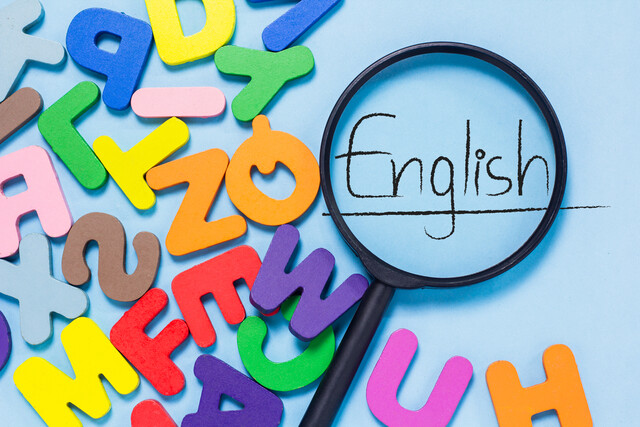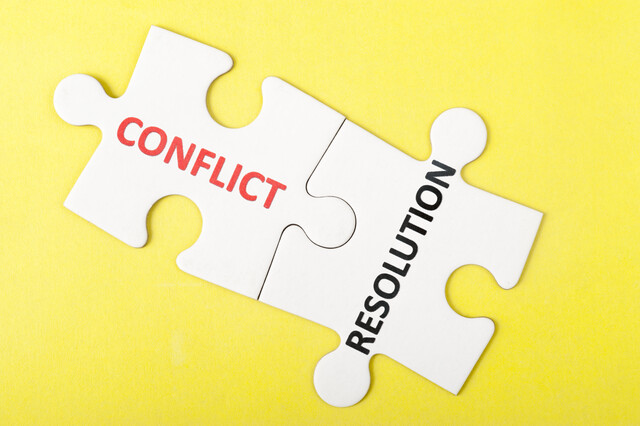Online Class: Child Abuse Recognition, Investigation, and Protection

no certificate
with CEU Certificate*
-
20Lessons
-
28Exams &
Assignments -
3,133Students
have taken this course -
12Hours
average time -
1.2CEUs
Course Description
Course Overview: Child Abuse Investigation & Prevention
In a world that is advancing rapidly, one of the most unfortunate yet pressing issues is the prevalence of child abuse. It is not just the responsibility of a select few but rather a collective duty of society to ensure the safety and well-being of its youngest members. Bringing awareness, education, and actionable measures to address this menace is crucial.
Course Description:
Dive deep into the complex and challenging arena of child abuse and its various facets, from identification to intervention. This course provides a comprehensive insight into the myriad forms of child maltreatment, ranging from neglect to physical and sexual abuse. Not limited to just identifying the problem, this course underscores the importance of proactive prevention and the role each individual can play in safeguarding a child's well-being.
With the distressing statistic that [current child abuse statistics], the need for educated professionals and aware citizens is paramount. This course addresses that gap, equipping learners with the skills to recognize, report, and ultimately prevent instances of child abuse.
The curriculum delves into the psychology of abusers, providing a detailed profile to assist in early identification. By understanding the tell-tale signs of abuse, individuals are better placed to intervene and prevent further harm.
Legal aspects surrounding child abuse are intricate. A strong emphasis is laid on understanding the legal obligations of different professionals, especially in terms of reporting abuse. Law enforcement's role in these cases is dissected, from initiating investigations to ensuring evidence holds up in court. Special sessions focus on best practices for interviewing young victims, confronting suspects, and ensuring the child's overall safety.
Furthermore, the course sheds light on specific conditions, like Munchausen Syndrome by Proxy, that often go unnoticed due to their complex nature. Case studies are presented, allowing learners to apply their knowledge in real-life scenarios, thereby solidifying their understanding.
Highlights:
-
Defining Abuse: Understand the broader spectrum of what constitutes abuse and neglect.
-
Spotting the Signs: From physical marks to behavioral changes, become adept at recognizing the indicators of maltreatment.
-
Legal Boundaries: Grasp the legal responsibilities, particularly those of professionals, in reporting abuse.
-
Investigative Techniques: Dive into the methodologies employed by law enforcement during child abuse investigations.
-
Protection and Prevention: While intervention is vital, the ultimate goal is to foster environments where children are safe and nurtured.
Course Modules:
-
Lesson 1: Introduction to Child Abuse Investigation: Setting the stage for the course and establishing its importance.
-
Lesson 2-3: Profiling abusers and defining the spectrum of abuse.
-
Lesson 4-5: Recognizing and assessing signs of abuse.
-
Lesson 6: A deep dive into conditions like Munchausen Syndrome by Proxy.
-
Lesson 7-9: Understanding the legal landscape, from mandatory reporting to law enforcement procedures.
-
Lesson 10-13: Investigative processes, from crime scene analysis to confronting suspects.
-
Lesson 14-15: Special focus on crime scene investigations and the tragic outcomes of severe abuse.
-
Lesson 16-17: The role of educators in child protection and best practices for interviewing parents.
-
Lesson 18-19: Legal procedures in sexual abuse and physical abuse/homicide cases.
-
Lesson 20: Ensuring long-term safety and protection for children post-investigation.
Why Enroll?
This course is a blend of theoretical knowledge and practical skills, making it invaluable for professionals and general public alike. Whether you're a law enforcement officer, educator, healthcare professional, or a concerned citizen, this course empowers you to make a tangible difference in the life of a vulnerable child.
Join us in our mission to create safer communities for our children. Equip yourself with the knowledge and tools to not only spot but to stop child abuse in its tracks.
- Completely Online
- Self-Paced
- Printable Lessons
- Full HD Video

- 6 Months to Complete
- 24/7 Availability
- Start Anytime
- PC & Mac Compatible
- Android & iOS Friendly
- Accredited CEUs

Course Lessons
Lesson 1. Recognizing and Reporting Child Abuse
 Lesson 1 Video
Lesson 1 Video Review Practice Worksheet: Lesson-1-WorkSheet-9221.pdf
Review Practice Worksheet: Lesson-1-WorkSheet-9221.pdf Lesson discussions: Reasons for Taking this Course
Lesson discussions: Reasons for Taking this Course Complete Assignment: Motives for Taking this Course
Complete Assignment: Motives for Taking this Course Assessment: Lesson 1 Review Exam
Assessment: Lesson 1 Review Exam
Lesson 2. Breaking the Cycle: Strategies in Combating Child Abuse
 Lesson 2 Video
Lesson 2 Video Review Practice Worksheet: Lesson-2-WorkSheet-9222.pdf
Review Practice Worksheet: Lesson-2-WorkSheet-9222.pdf Assessment: Lesson 2 Review Exam
Assessment: Lesson 2 Review Exam
Lesson 3. Child Protection: Beyond Awareness
 Lesson 3 Video
Lesson 3 Video Review Practice Worksheet: Lesson-3-Activity-9223.pdf
Review Practice Worksheet: Lesson-3-Activity-9223.pdf Complete: Lesson 3 Activity
Complete: Lesson 3 Activity Assessment: Lesson 3 Review Exam
Assessment: Lesson 3 Review Exam
Lesson 4. Identifying Key Indicators of Child Abuse
 Lesson 4 Video
Lesson 4 Video Review Practice Worksheet: Lesson-4-Downloadable-9224.pdf
Review Practice Worksheet: Lesson-4-Downloadable-9224.pdf Assessment: Lesson 4 Review Exam
Assessment: Lesson 4 Review Exam
Lesson 5. From Recognizing Indicators to Ensuring Safety: Comprehensive Guide on Child Abuse
 Lesson 5 Video
Lesson 5 Video Review Practice Worksheet: Lesson-5-HomeWork-9225.pdf
Review Practice Worksheet: Lesson-5-HomeWork-9225.pdf Assessment: Lesson 5 Review Exam
Assessment: Lesson 5 Review Exam
Lesson 6. Munchausen Syndrome by Proxy: An In-Depth Guide
 Lesson 6 Video
Lesson 6 Video Review Practice Worksheet: Lesson-6-Activity-9226.pdf
Review Practice Worksheet: Lesson-6-Activity-9226.pdf Assessment: Lesson 6 Review Exam
Assessment: Lesson 6 Review Exam
Lesson 7. Who Must Report Suspected Child Abuse?
 Lesson 7 Video
Lesson 7 Video Review Practice Worksheet: Lesson-7-WordSearch-9227.pdf
Review Practice Worksheet: Lesson-7-WordSearch-9227.pdf Assessment: Lesson 7 Review Exam
Assessment: Lesson 7 Review Exam
Lesson 8. Safeguarding Whistleblowers: Legal Shields for Reporters
 Lesson 8 Video
Lesson 8 Video Review Practice Worksheet: Lesson-8-Downloadable-9228.pdf
Review Practice Worksheet: Lesson-8-Downloadable-9228.pdf Complete: Lesson 8 Activity
Complete: Lesson 8 Activity Assessment: Lesson 8 Review Exam
Assessment: Lesson 8 Review Exam
Lesson 9. Comprehensive Protocols for Child Abuse Investigation
 Lesson 9 Video
Lesson 9 Video Review Practice Worksheet: Lesson-9-WorkSheet-9229.pdf
Review Practice Worksheet: Lesson-9-WorkSheet-9229.pdf Assessment: Lesson 9 Review Exam
Assessment: Lesson 9 Review Exam
Lesson 10. Uncovering the Truth: Developmental Psychology in Child Interviews
 Lesson 10 Video
Lesson 10 Video Review Practice Worksheet: Lesson-10-WordSearch-9230.pdf
Review Practice Worksheet: Lesson-10-WordSearch-9230.pdf Assessment: Lesson 10 Review Exam
Assessment: Lesson 10 Review Exam
Lesson 11. Creating a Supportive Environment for Child Interviews
 Lesson 11 Video
Lesson 11 Video Review Practice Worksheet: Lesson-11-WordSearch-9231.pdf
Review Practice Worksheet: Lesson-11-WordSearch-9231.pdf Complete: Lesson 11 Activity
Complete: Lesson 11 Activity Assessment: Lesson 11 Review Exam
Assessment: Lesson 11 Review Exam
Lesson 12. Empathy and Evidence: The Dual Pillars of Child Abuse Investigations
 Lesson 12 Video
Lesson 12 Video Review Practice Worksheet: Lesson-12-Activity-9232.pdf
Review Practice Worksheet: Lesson-12-Activity-9232.pdf Assessment: Lesson 12 Review Exam
Assessment: Lesson 12 Review Exam
Lesson 13. Crafting the Path to Justice: Empathy and Technique in Child Abuse Interrogations
 Lesson 13 Video
Lesson 13 Video Review Practice Worksheet: Lesson-13-HomeWork-9233.pdf
Review Practice Worksheet: Lesson-13-HomeWork-9233.pdf Complete: Lesson 13 Activity
Complete: Lesson 13 Activity Assessment: Lesson 13 Review Exam
Assessment: Lesson 13 Review Exam
Lesson 14. Investigating Child Abuse: Legal Safeguards and Procedures
 Lesson 14 Video
Lesson 14 Video Review Practice Worksheet: Lesson-14-Activity-9234.pdf
Review Practice Worksheet: Lesson-14-Activity-9234.pdf Assessment: Lesson 14 Review Exam
Assessment: Lesson 14 Review Exam
Lesson 15. Child Death Investigations: A Multi-Faceted Approach
 Lesson 15 Video
Lesson 15 Video Review Practice Worksheet: Lesson-15-WorkSheet-9235.pdf
Review Practice Worksheet: Lesson-15-WorkSheet-9235.pdf Complete: Lesson 15 Activity
Complete: Lesson 15 Activity Assessment: Lesson 15 Review Exam
Assessment: Lesson 15 Review Exam
Lesson 16. Empowering Educators: Strategies for Recognizing and Reporting Child Abuse
 Lesson 16 Video
Lesson 16 Video Review Practice Worksheet: Lesson-16-Downloadable-9236.pdf
Review Practice Worksheet: Lesson-16-Downloadable-9236.pdf Assessment: Lesson 16 Exam
Assessment: Lesson 16 Exam Assessment: Lesson 16 Review Exam
Assessment: Lesson 16 Review Exam
Lesson 17. Strategic Dialogues: Unearthing Truth in Child Welfare Investigations
 Lesson 17 Video
Lesson 17 Video Review Practice Worksheet: Lesson-17-HomeWork-9237.pdf
Review Practice Worksheet: Lesson-17-HomeWork-9237.pdf Assessment: Lesson 17 Review Exam
Assessment: Lesson 17 Review Exam
Lesson 18. Navigating the Complexities of Sexual Child Abuse Charges
 Lesson 18 Video
Lesson 18 Video Review Practice Worksheet: Lesson-18-Downloadable-9238.pdf
Review Practice Worksheet: Lesson-18-Downloadable-9238.pdf Complete: Lesson 18 Activity
Complete: Lesson 18 Activity Assessment: Lesson 18 Review Exam
Assessment: Lesson 18 Review Exam
Lesson 19. Felony Murder & Abusive Homicide Explained
 Lesson 19 Video
Lesson 19 Video Review Practice Worksheet: Lesson-19-Activity-9239.pdf
Review Practice Worksheet: Lesson-19-Activity-9239.pdf Assessment: Lesson 19 Review Exam
Assessment: Lesson 19 Review Exam
Lesson 20. Proactive Advocacy for Child Welfare
 Lesson 20 Video
Lesson 20 Video Review Practice Worksheet: Lesson-20-WorkSheet-9240.pdf
Review Practice Worksheet: Lesson-20-WorkSheet-9240.pdf Lesson discussions: What do you think about this course?; Program Evaluation Follow-up Survey (End of Course); Course Comments
Lesson discussions: What do you think about this course?; Program Evaluation Follow-up Survey (End of Course); Course Comments Assessment: Lesson 20 Review Exam
Assessment: Lesson 20 Review Exam
Learning Outcomes
- Identify and describe the four main types of child abuse�physical, sexual, emotional, and neglect�by listing their respective indicators and signs.
- Recognize the historical context and evolution of child protection laws by summarizing significant milestones from ancient societies to modern legal frameworks.
- Define the diverse profiles of child abusers, identifying the common traits and behaviors that enable abuse regardless of socio-economic background.
- Outline strategies to recognize and combat child abuse, focusing on education, community support, and legislative measures to prevent neglect and exploitation.
- Demonstrate an understanding of the socioeconomic factors that contribute to child abuse and neglect and propose strategies to mitigate these influences within communities.
- Recognize and differentiate between the four main categories of child abuse: physical, sexual, emotional, and neglect, including their unique characteristics and potential indicators.
- Define and identify at least three behavioral, emotional, and physical indicators of child abuse that vary by developmental stage.
- Describe the impact of abuse on children by analyzing case scenarios and link specific behaviors to underlying abuse circumstances.
- Demonstrate the ability to report suspected child abuse appropriately by understanding the legal considerations and procedures for notifying relevant authorities.
- Identify and describe physical and behavioral indicators of child abuse, including bruising patterns, injury locations, and changes in behavior.
- Define Munchausen Syndrome by Proxy and identify key indicators of the condition, such as inconsistent medical narratives and frequent unexplained hospital visits.
- Recognize the psychological and social factors contributing to Munchausen Syndrome by Proxy and demonstrate strategies for early detection and intervention.
- Recognize and differentiate between the various forms of child abuse, including physical, emotional, sexual abuse, and neglect, based on specific indicators.
- Demonstrate mastery of lesson content at levels of 70% or higher.
Additional Course Information

- Document Your Lifelong Learning Achievements
- Earn an Official Certificate Documenting Course Hours and CEUs
- Verify Your Certificate with a Unique Serial Number Online
- View and Share Your Certificate Online or Download/Print as PDF
- Display Your Certificate on Your Resume and Promote Your Achievements Using Social Media

Choose Your Subscription Plan
No Certificate / No CEUs
This course only
| Includes certificate | X |
| Includes CEUs | X |
| Self-paced |

|
| Instructor support |

|
| Time to complete | 6 months |
| No. of courses | 1 course |
Certificate & CEUs
This course only
| Includes certificate |

|
| Includes CEUs |

|
| Self-paced |

|
| Instructor support |

|
| Time to complete | 6 months |
| No. of courses | 1 course |
Certificates & CEUs
Includes all 600+ courses
| Includes certificate |

|
| Includes CEUs |

|
| Self-paced |

|
| Instructor support |

|
| Time to complete | 12 Months |
| No. of courses | 600+ |
Certificates & CEUs
Includes all 600+ courses
| Includes certificate |

|
| Includes CEUs |

|
| Self-paced |

|
| Instructor support |

|
| Time to complete | 24 Months |
| No. of courses | 600+ |
Student Testimonials
- "This was a great refresher course for a teacher like me. The information was presented in an orderly manner and easy to follow. All objectives were clearly stated and discussed. Thank you!" -- Kasimira L.
- "I loved this course. Child abuse is a very hard subject for most but we need the education to help combat it." -- Stephanie M.
- "I learned so much more than I knew or could learn from TV shows. Thank you for creating the criteria and the materials on the subject of Child Abuse." -- Tara F.
- "I enjoyed this course although it made me sad. It is so hard to believe children have to go through so much pain, I know that they do." -- Anna W.
- "All the learning resources well organized and very helpful." -- Waisea T.
- "Excellent program, I look forward to learning more and being able to help those in need. Thanks." -- Kimberly B.
- "I enjoyed this course and do feel much more informed about child abuse." -- Savannah R.
- "The instructor was excellent, fast response, and gave excellent information." -- Bonnie H.
- "The course was very informative and enjoyable." -- Dany P.
- "Thank you for your quick response and nice comments." -- Cynthia M.
Related Courses
-
 21 hours
2.1 CEUs
Ultimate Parenting Course Bundle
+ More Info
21 hours
2.1 CEUs
Ultimate Parenting Course Bundle
+ More Info
-
 72 hours
7.2 CEUs
Writing Help Course Bundle
+ More Info
72 hours
7.2 CEUs
Writing Help Course Bundle
+ More Info
-
 52 hours
5.2 CEUs
ESL Grammar Skills: Level 1-5 Course Bundle
+ More Info
52 hours
5.2 CEUs
ESL Grammar Skills: Level 1-5 Course Bundle
+ More Info
-
 45 hours
4.5 CEUs
Event Management Course Bundle
+ More Info
45 hours
4.5 CEUs
Event Management Course Bundle
+ More Info
-
 74 hours
7.4 CEUs
Medical Billing and Coding Course Bundle
+ More Info
74 hours
7.4 CEUs
Medical Billing and Coding Course Bundle
+ More Info
-
 26 hours
2.6 CEUs
Human Resources Productivity Course Bundle
+ More Info
26 hours
2.6 CEUs
Human Resources Productivity Course Bundle
+ More Info
-
 10 hours
1.0 CEUs
Memory and Concentration Techniques
+ More Info
10 hours
1.0 CEUs
Memory and Concentration Techniques
+ More Info
-
 33 hours
3.3 CEUs
World War l and ll
+ More Info
33 hours
3.3 CEUs
World War l and ll
+ More Info
-
 54 hours
5.4 CEUs
Become a Life Coach - Course Bundle
+ More Info
54 hours
5.4 CEUs
Become a Life Coach - Course Bundle
+ More Info
-
 95 hours
9.5 CEUs
Math All-In-One (Arithmetic, Algebra, and Geometry Review)
+ More Info
95 hours
9.5 CEUs
Math All-In-One (Arithmetic, Algebra, and Geometry Review)
+ More Info
-
 26 hours
2.6 CEUs
Ultimate Excel Training Bundle
+ More Info
26 hours
2.6 CEUs
Ultimate Excel Training Bundle
+ More Info
-
 17 hours
1.7 CEUs
ESL Basic Grammar and Writing
+ More Info
17 hours
1.7 CEUs
ESL Basic Grammar and Writing
+ More Info
-
 21 hours
2.1 CEUs
American Wars: American Revolution and Civil War
+ More Info
21 hours
2.1 CEUs
American Wars: American Revolution and Civil War
+ More Info
-
 36 hours
3.6 CEUs
Ultimate Secretary Training Bundle
+ More Info
36 hours
3.6 CEUs
Ultimate Secretary Training Bundle
+ More Info
-
 8 hours
0.8 CEUs
Virtual Assistant 101
+ More Info
8 hours
0.8 CEUs
Virtual Assistant 101
+ More Info
-
 35 hours
3.5 CEUs
Statistics 101
+ More Info
35 hours
3.5 CEUs
Statistics 101
+ More Info
-
 10 hours
1.0 CEUs
Contract Law 101 - An Introduction
+ More Info
10 hours
1.0 CEUs
Contract Law 101 - An Introduction
+ More Info
-
 9 hours
0.9 CEUs
Nonfiction Writing 101
+ More Info
9 hours
0.9 CEUs
Nonfiction Writing 101
+ More Info
-
 12 hours
1.2 CEUs
Write to Win: Secrets of Persuasive Writing
+ More Info
12 hours
1.2 CEUs
Write to Win: Secrets of Persuasive Writing
+ More Info
-
 6 hours
0.6 CEUs
Workplace Violence: A Guide to Responding and Preventing
+ More Info
6 hours
0.6 CEUs
Workplace Violence: A Guide to Responding and Preventing
+ More Info
-
 4 hours
0.4 CEUs
Pre-Columbian Mythology
+ More Info
4 hours
0.4 CEUs
Pre-Columbian Mythology
+ More Info
-
 6 hours
0.6 CEUs
HIPAA Compliance 101
+ More Info
6 hours
0.6 CEUs
HIPAA Compliance 101
+ More Info
-
 2 hours
0.2 CEUs
Understanding Insurance Types
+ More Info
2 hours
0.2 CEUs
Understanding Insurance Types
+ More Info
-
 6 hours
0.6 CEUs
Computer Literacy Level 2 - Internet Basics
+ More Info
6 hours
0.6 CEUs
Computer Literacy Level 2 - Internet Basics
+ More Info
-
 11 hours
1.1 CEUs
Wellness Coaching
+ More Info
11 hours
1.1 CEUs
Wellness Coaching
+ More Info
-
 8 hours
0.8 CEUs
Procurement Management
+ More Info
8 hours
0.8 CEUs
Procurement Management
+ More Info
-
 11 hours
1.1 CEUs
Mediation 101
+ More Info
11 hours
1.1 CEUs
Mediation 101
+ More Info
-
 3 hours
0.3 CEUs
Housekeeping 101
+ More Info
3 hours
0.3 CEUs
Housekeeping 101
+ More Info






